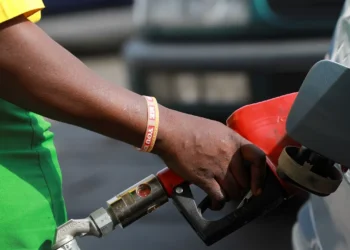Nigeria’s economy expanded by 3.54% in real terms in the second quarter of 2022, an improvement compared to the 3.11% reported in the previous quarter, but lesser than the 5.01% growth recorded in the corresponding quarter of 2021. This is according to the National Bureau of Statistics (NBS) Gross Domestic Product Report for Q2 2022.
2022 has come with an economic quagmire. Rising price levels due to the war in Ukraine led to the emergence of historic inflation in several countries, and for Nigeria, inflation hit a 17-year high of 19.64% in July. As inflationary pressure mounted up, several countries resorted to interest rate hikes thereby contracting economic prospects within this period. The Central Bank of Nigeria raised the monetary policy rate twice in the second quarter of 2022 and other major central banks like the US Fed also stuck with hawkish rate hikes.
This second quarter growth of the Nigerian economy, coming despite the weakening impact of the geopolitical tension in Eastern Europe and the global economic bumps over the past few months, was on the back of some sectors; Water Supply, Sewage, and Waste Management sector; Finance and Insurance, and other sectors. But the sectors with the highest sectoral contribution to real GDP include for the second quarter of 2022 include:
Agriculture 23.24%
The Agricultural sector maintains the largest sectoral contributor to Nigeria’s GDP, responsible for 23.24% percent of the real GDP, although this figure is lower than the rate recorded (23.78%) in Q2 2021 but still higher than that of Q1 2022 (22.36%). The agricultural sector in the second quarter of 2022 grew by 3.55% (quarter-on-quarter) in real terms. Crop Production, a sub-sector of the agricultural sector is the main driver of the sector’s growth as it accounts for 91.99% of the sector’s growth in the second quarter of 2022.
Information and Communication – 18.44%
In real terms, the sector contributed 18.44% in the 2022 second quarter, higher than in the same quarter of the previous year in which it represented 17.92% and higher than the preceding quarter in which it represented 16.20%. The sector recorded a real terms growth rate of 6.55% year-on-year. From the rate recorded in the corresponding period of 2021, there was an increase of 0.99% points. Quarter-on-Quarter, the sector exhibited a growth of 13.41% in real terms.
Trade – 16.81%
For Q2 2022, Trade was the second largest contributor to real GDP pulling in 16.81%, a figure higher than the previous quarter’s 16.13%, and higher than the previous year’s second quarter contribution of 16.66%. In real terms, Trade’s quarter-on-quarter growth stood at 3.83%. This growth was higher than the quarter-on-quarter growth recorded in the first quarter of 2022 at -12.11%.
Manufacturing – 8.65%
The manufacturing sector recorded an 8.65% contribution to nominal GDP. This figure is underperforming when compared with the figure recorded in the corresponding period of 2021 at 8.69% and lower than the first quarter of 2022 at 10.20%. The Growth rate of the manufacturing sector on a quarter-on-quarter basis stood at -15.47%.
Mining and Quarrying – 6.51%
The total real GDP contribution of Mining and Quarrying in the quarter under review stood at 6.51%, ticking down from the rate of 7.58% recorded in the corresponding quarter of 2021 and lower than the 6.67% recorded in the first quarter of 2022.











